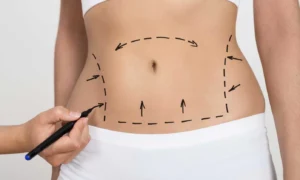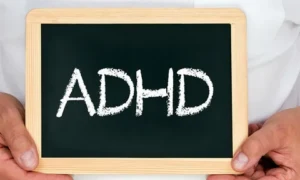Creativity, the innate ability to imagine, invent, and express oneself through various artistic, intellectual, or innovative means, has long captivated our species and fueled our progress. However, beneath the veil of creativity lies a complex connection with mental health, a realm where emotions, cognition, and psychological well-being converge.
The link between creativity and mental health has intrigued scholars, psychologists, and artists alike, prompting an exploration into the depths of the human psyche. While the creative process can be a source of liberation and catharsis, it can also expose vulnerabilities and exacerbate mental health challenges. Understanding this intricate interplay is crucial not only to unravel the enigma of human imagination but also to shed light on mental health and its impact on creative expression.
The Benefits of Creativity on Mental Health
Beyond mere aesthetics, creativity has been found to have significant positive effects on mental health. Engaging in creative activities can be a valuable outlet for emotions, stress relief, and personal growth.
Stress Reduction
One of the most notable benefits of engaging in creative pursuits is its ability to reduce stress and anxiety. When we immerse ourselves in a creative task, our focus shifts away from daily worries and stressors. Creative activities, such as painting, writing, or crafting, promote a state of flow, where time seems to fly by and we become fully absorbed in the present moment. This meditative-like state can help to calm the mind, reduce cortisol levels (the stress hormone), and promote a sense of relaxation. By taking time to be creative regularly, we can create a buffer against the detrimental effects of chronic stress on our mental well-being.
Emotional Expression
Creativity provides a safe and constructive outlet for emotional expression. Many people find it challenging to express their feelings verbally, but through artistic means, they can communicate complex emotions and experiences. Whether it’s through painting, dance, or writing, creative expression allows individuals to process their feelings, confront inner conflicts, and gain insights into their emotional landscape. It can be therapeutic to give form to emotions that may otherwise remain repressed or misunderstood, leading to improved emotional resilience and self-awareness.
Boosting Self-Esteem and Confidence
Creating something unique and meaningful can boost self-esteem and confidence. Engaging in creative endeavors allows individuals to see their capabilities in a positive light and experience a sense of accomplishment. Whether it’s finishing a creative project, receiving praise for their work, or simply realizing their growth over time, these moments contribute to a more positive self-perception. Increased self-esteem can act as a buffer against depression and anxiety, fostering a healthier sense of self-worth.
Mindfulness and Present Moment Awareness
Engaging in creative activities encourages mindfulness and present moment awareness. When we are fully immersed in the process of creating, our minds become attuned to the details and sensations of the task at hand. The act of creating demands our full attention, which can help break the cycle of rumination and overthinking. Practicing mindfulness through creativity can lead to increased resilience to negative thoughts and a greater appreciation for the beauty and richness of life in the here and now.
Social Connection and Community
Participating in creative pursuits often opens doors to social connection and community engagement. Creative hobbies can bring people together, whether it’s through art classes, writing groups, or collaborative projects. A sense of belonging to a creative community can provide emotional support, reduce feelings of loneliness, and offer a shared sense of purpose. These connections can be especially valuable for individuals struggling with mental health issues, as they find understanding and empathy within like-minded groups.
Creative Ideas to Improve Mental Health
Mental health is a crucial aspect of overall well-being, and finding creative ways to improve it can lead to significant positive outcomes. Engaging in activities that promote relaxation, emotional expression, and self-care can be both enjoyable and effective in fostering better mental health.
Mindful Movement and Dance
Mindful movement and dance offer a creative and expressive outlet for improving mental health. Engaging in activities like yoga, tai chi, or dance can help individuals connect their mind and body, fostering a sense of grounding and inner peace. The rhythmic movements and focus on breath promote relaxation and reduce stress. Dance, in particular, allows for emotional expression and release, helping individuals process and cope with feelings in a nonverbal manner.
Mind Mapping and Journaling
Mind mapping and journaling are creative techniques that promote self-awareness and emotional processing. Mind mapping involves visually organizing thoughts and ideas, while journaling allows individuals to reflect on their experiences, emotions, and thoughts in writing. These practices provide an opportunity for introspection and can help individuals gain insights into their mental and emotional landscape. They also act as a means of catharsis, reducing feelings of overwhelm and promoting clarity.
Therapeutic Cooking and Baking
Cooking and baking can be therapeutic and creative ways to improve mental health. Engaging in the process of preparing food can be meditative, allowing individuals to focus on the task at hand and find joy in the sensory experiences of cooking. Trying out new recipes and experimenting with ingredients can stimulate the brain’s reward centers, boosting feelings of accomplishment and pleasure. Additionally, sharing meals with loved ones can foster social connections, which are beneficial for mental well-being.
Creative Writing and Poetry
Engaging in creative writing and poetry can be a powerful form of self-expression and emotional release. Writing allows individuals to externalize their thoughts and feelings, providing a sense of relief and validation. Whether it’s journaling, fiction writing, or poetry, these creative endeavors enable individuals to process complex emotions, explore their inner world, and gain a deeper understanding of themselves. Writing also nurtures imagination and creativity, leading to increased cognitive flexibility.
Music Therapy and Listening
Music therapy and simply listening to music can have profound effects on mental health. Music has the ability to evoke emotions and memories, acting as a form of catharsis and comfort during difficult times. Engaging in music-making, whether through playing an instrument or singing, can be an expressive outlet for emotions that may be challenging to verbalize. Listening to calming music can also promote relaxation and reduce anxiety, providing a powerful tool for stress management.
Art and Craft Therapy
Participating in art and craft activities can provide therapeutic benefits for mental health. Engaging in creative endeavors like painting, sculpting, or crafting allows individuals to tap into their imagination and creativity, promoting a sense of joy and fulfillment. Art can be a nonverbal way to express emotions and explore deeper aspects of the self. Craft activities, such as knitting or woodworking, can induce a state of flow, reducing stress and enhancing focus.
Digital Detox and Nature Exploration
Taking a break from screens and spending time in nature can have a restorative impact on mental health. A digital detox involves unplugging from electronic devices, giving the mind a chance to rest and reset. Nature exploration, such as hiking in the wilderness or strolling through a park, provides an opportunity to connect with the natural world and experience its calming effects. Time in nature has been linked to reduced symptoms of anxiety and depression and improved overall well-being.
Laughter and Improvisation
Engaging in activities that promote laughter and improvisation can lighten the mood and improve mental health. Laughter triggers the release of endorphins, which are natural mood boosters. Participating in improv games or comedy workshops can help individuals develop a sense of playfulness and spontaneity, fostering a more flexible and resilient mindset. These activities encourage individuals to let go of self-judgment and embrace the joy of the present moment.
Reminder
Creativity is a powerful tool that can significantly impact mental health and well-being. The benefits of engaging in creative activities are manifold, from reducing stress and promoting relaxation to fostering self-expression and emotional release. By incorporating creative practices into our daily lives, we can enhance our mental health, cultivate resilience, and find greater fulfillment.
However, if you are struggling with anxiety or depression and it is starting to disrupt your life, it is best to seek professional help and support. Visit Mindshift Psychological Services for therapy or counseling sessions. Call them at (714) 584-9700 to schedule an appointment.
















